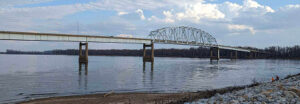
Kimberly Sherwood
Commissioner, Boiling Spring Lakes, NC
Floods are a way of showing the power of nature. The American Flood Coalition is there to give hope to those who suffer the losses.
Kimberly Sherwood is a current Commissioner in Boiling Spring Lakes. She is active in her community including wildlife rehab and animal rescue. Kim cares deeply about the environment and working to protect it from the effects of climate change. Kimberly was Mayor Pro Tem at Carolina Beach for four years in the 90’s, helping to guide the town through hurricanes Bertha and Fran which devastated Carolina Beach. Kim has worked on many boards and committees in service to her community and cares passionately about moving Boiling Spring Lakes forward into the future effectively. She has worked diligently on helping to secure the funding for the 54 million dollar dam reconstruction project in BSL. Kim attends New Creations church regularly where she is active in many projects including the landscaping there. Kim has an associate degree, a bachelor’s degree and a master’s degree in Criminal Justice and is now pursuing her Horticulture degree from BCC. Kim worked as a flight attendant for 35 years, retiring in 2018. She has two daughters and two grandchildren.


